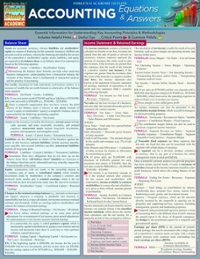Question
managerial accounting.Case Study- 1- Margaret owned an antique store that specialised in rare porcelain dolls. When she opened the business in 1989, it was at
managerial accounting.Case Study- 1- Margaret owned an antique store that specialised in rare porcelain dolls. When she opened the business in 1989, it was at a shop in an eastern suburb of Melbourne. In 1999 she started to advertise on the Internet and by 2006 the business had grown to the point where she needed help to keep the business going. After a family discussion one night at the kitchen table in July 2006, it was agreed that Margaret would probably keep the business going for another couple of years and then retire. Emily, her youngest daughter and aged 16, would work in the shop as long as was needed and in return, she would receive any unsold dolls
Question 3 I have been taught to examine vocal resonance by asking the patient to say 'ninety-nine' while auscultating. I listen for a louder 'ninety-nine' over an area of consolidation and more quiet sounds with effusion. Is this right?
Question 4 What role does bupropion play in giving up smoking?
Question 5 The clinical signs and symptoms of rhinitis are very similar to those of the common cold (influenza). How do I differentiate between the two?
Question 6 What is the advantage of the drugs des-loratidine and levo-cetirizine over their parent compounds? Are they safe in pregnancy and lactation?
Question 7 What are the differences between acute bronchitis and pneumonia? Are both diseases caused by infection?
Question 8 1. If a patient with chronic bronchitis develops obstructive jaundice and Escherichia coli biliary sepsis, should the routine administration of oral steroids (e.g. prednisolone) be suspended until liver function improves? 2. Are there any adverse reactions that preclude the concurrent use of steroids while the patient is treated with IV ciprofloxacin, gentamicin, metronidazole and cefuroxime?
Question 9 Robbins Basic Pathology mentions that in patients with chronic obstructive pulmonary disease (COPD), the forced ventilation capacity (FVC) is either normal or slightly increased! I just can't justify that. I mean it should decrease. And this is exactly what is mentioned in your book. I couldn't contact the authors of that book so I decided to ask you whether there is actually a situation in which the FVC in COPD patients might increase?
Question 10 Is there any obstructive pulmonary condition in which there might be an increase in FVC? If so by what mechanism?
Question 11 I am confused whether clubbing is a feature of chronic obstructive pulmonary disease (COPD) or not - you have mentioned that it is not a feature of COPD but some books do say that clubbing is a clinical feature of COPD.
Step by Step Solution
There are 3 Steps involved in it
Step: 1

Get Instant Access to Expert-Tailored Solutions
See step-by-step solutions with expert insights and AI powered tools for academic success
Step: 2

Step: 3

Ace Your Homework with AI
Get the answers you need in no time with our AI-driven, step-by-step assistance
Get Started


